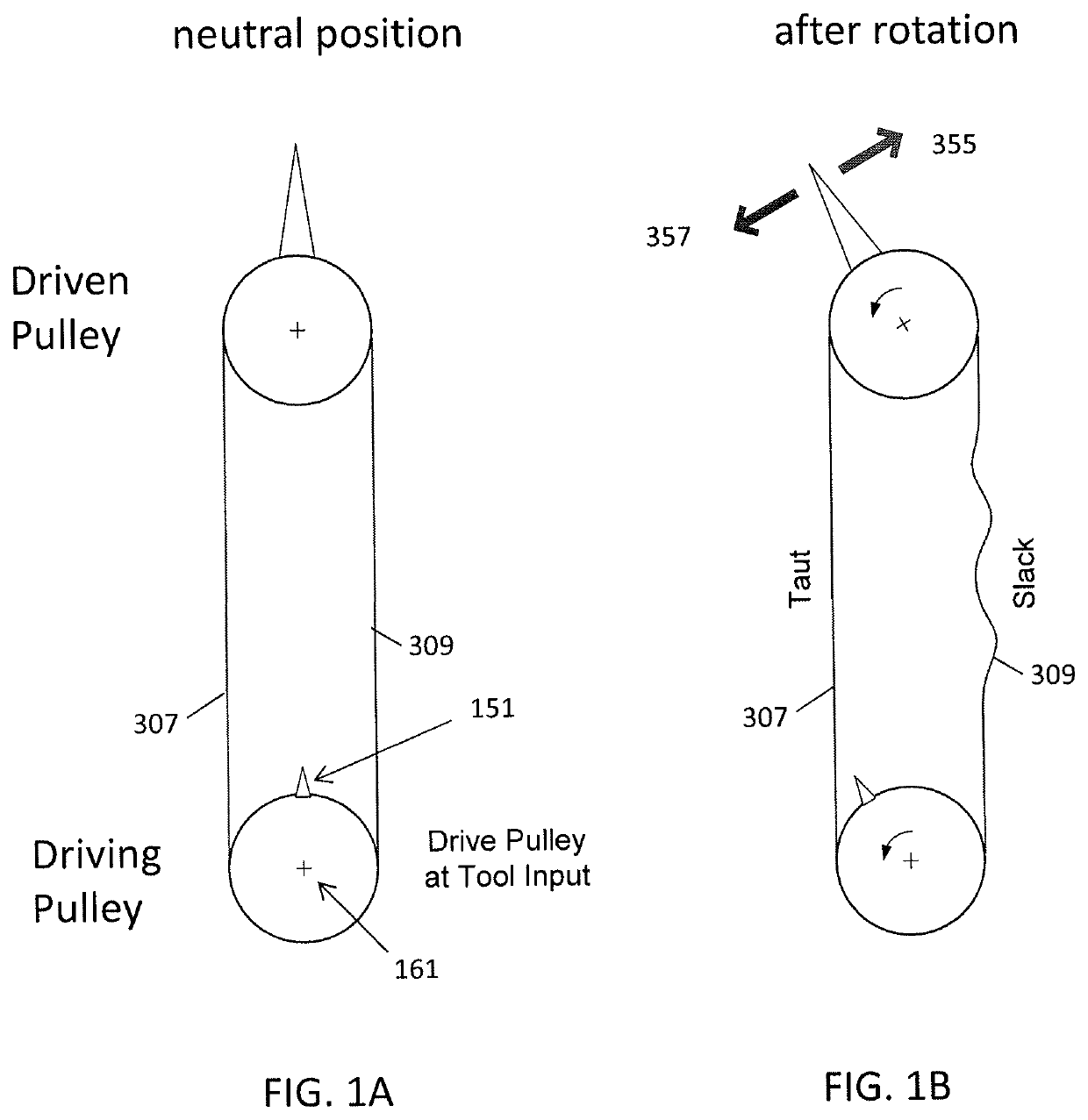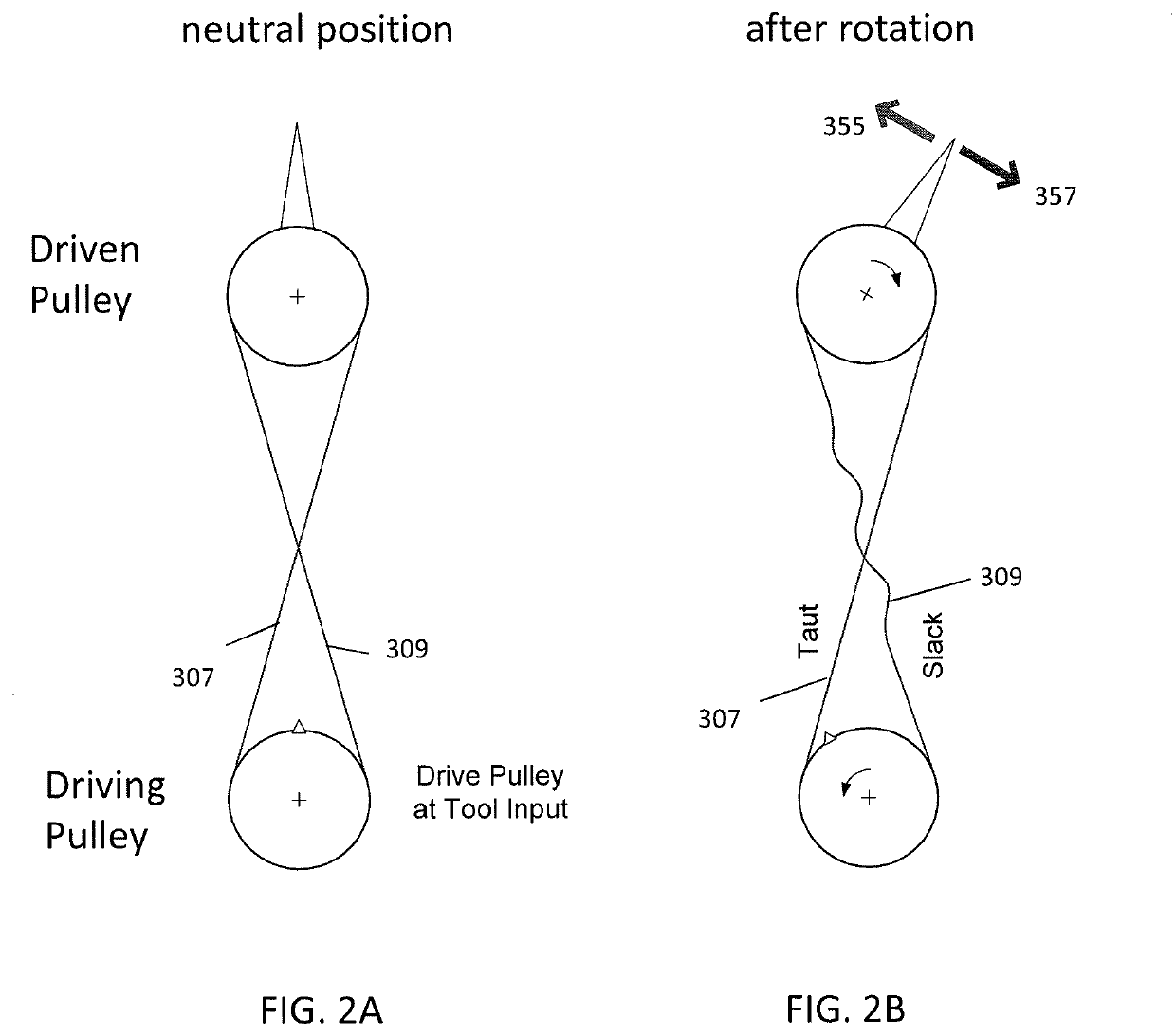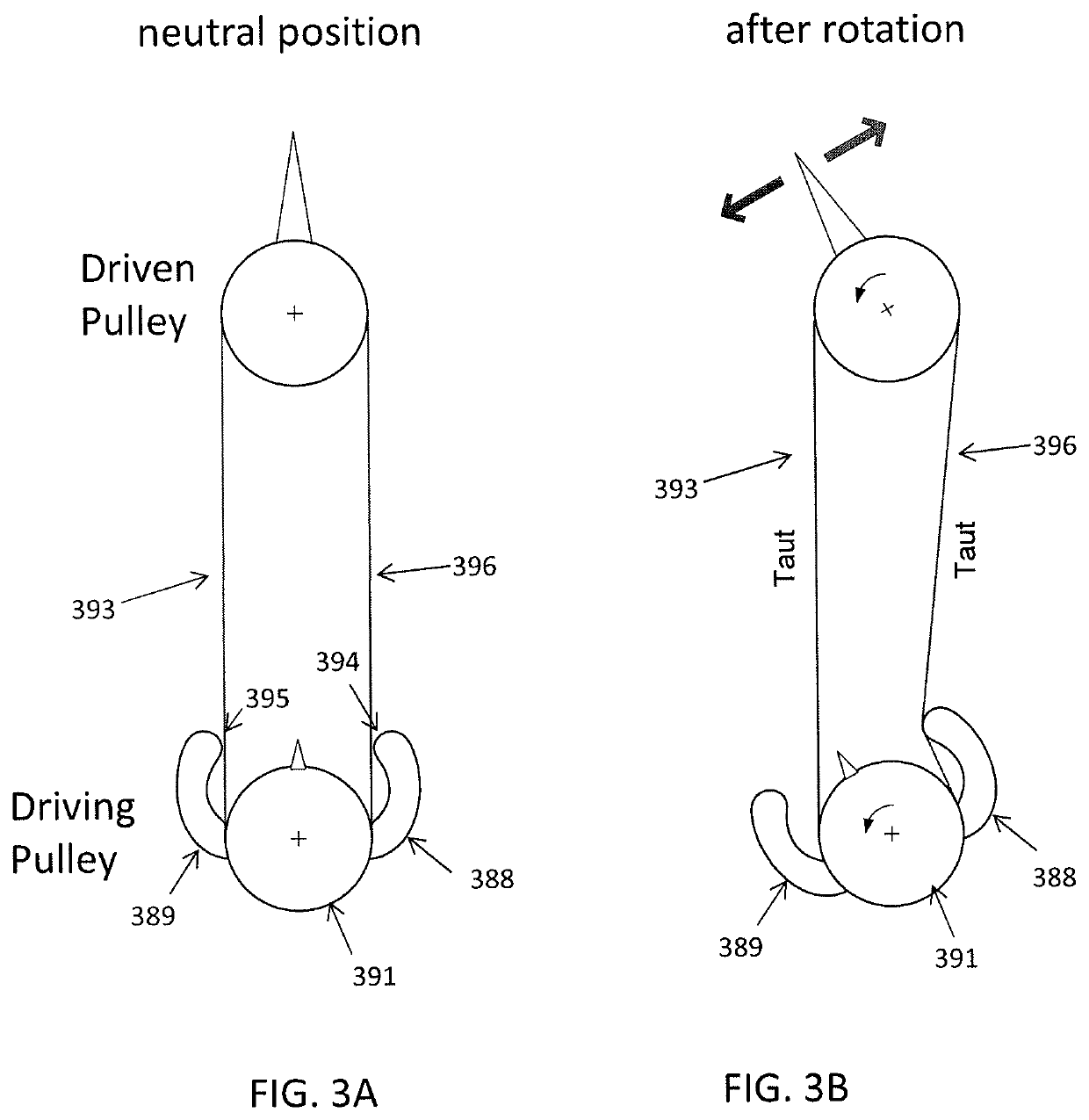Tension management apparatus for cable-driven transmission
a technology of tension management and cable drive, which is applied in the direction of mechanical equipment, surgical forceps, gearing, etc., can solve the problems of cable driven transmission system slack, lack of complete determinism of driven pulley rotational position, etc., and achieve the effect of reducing slack
- Summary
- Abstract
- Description
- Claims
- Application Information
AI Technical Summary
Benefits of technology
Problems solved by technology
Method used
Image
Examples
Embodiment Construction
[0097]In general, described herein are slack compensating apparatuses for cable transmission systems, slack compensating pulleys, device (including in particular minimal access surgical tools) including a slack compensating transmission, and methods of operating them. In general, a slack-compensating pulley may have a pulley body with one or more (e.g., two) supports extending beyond the pulley body. The support(s) may include one or more slack take-up surfaces on them. The pulley body, support(s) and slack take-up surface(s) are coupled so that they rotate together about an axis of rotation, and rotation of the apparatus in a first direction will drive at least one of the slack take-up surfaces against a cable wound on the pulley body to reduce or remove slack from a portion of the cable leaving the pulley body. Driving the slack take-up surface against the cable increases the path length taken by the portion of the cable leaving the pulley body and also increases the wrap angle of...
PUM
 Login to View More
Login to View More Abstract
Description
Claims
Application Information
 Login to View More
Login to View More - R&D
- Intellectual Property
- Life Sciences
- Materials
- Tech Scout
- Unparalleled Data Quality
- Higher Quality Content
- 60% Fewer Hallucinations
Browse by: Latest US Patents, China's latest patents, Technical Efficacy Thesaurus, Application Domain, Technology Topic, Popular Technical Reports.
© 2025 PatSnap. All rights reserved.Legal|Privacy policy|Modern Slavery Act Transparency Statement|Sitemap|About US| Contact US: help@patsnap.com



